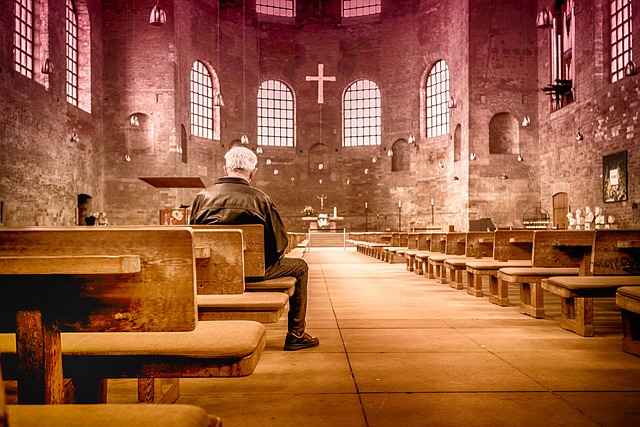12 “Now therefore give me this mountain” – Joshua 14:12
Promises
Despite his advanced age, Caleb was firmly holding onto God’s promise. Forty-five years had passed since he was promised this mountain and now it was time to cash in. With a generation of “doubters” buried in the desert behind him it was time to scale the mountain before him.
When the other ten spies trembled at the fear of man, Caleb and Joshua maintained their faith in God and His Word. As a reward for their faith, they were allowed to enter the promised land while their contemporaries slowly died off after forty years of desert wandering.
Forty-five years is a long time to wait for anything. It gives the enemy plenty of time to plant seeds of doubt. Day after day of desert wandering. Your feet are trodding sand but you are treading water. In your mind you hear the promise of God, with your eyes you see the consequences of doubt. Death.
Doubt is a cruel disease. It destroys us emotionally and spiritually before we ever take our last breath. Beware of the enemy when he whispers in your ear, “Did God really say?”. Caleb didn’t succumb. Those giants in the land were real, but they were no match for God on His throne.
Here stands an eighty-five year old man with an enemy infested mountain before him. “Giants” none the less. Probability says he can’t take the mountain. Caleb’s faith in God’s promise assures him he can and will. “Give me this mountain”.
Namesake
When our only son was born we named him Caleb after this great man of faith from the Bible. Born with Down Syndrome we knew our Caleb would have his own mountains to overcome. Some more real than others.
After blessing us with three daughters, I was hopeful that someday God would bless us with a son. Perhaps like most men, I wanted a son to raise and share certain experiences with. Someone who shared more of my likes and interests. Looking back I was probably guilty of wanting a new me. Or at least someone I could “live” through vicariously.
When the midwife delivered Caleb and announced that we had our first son I was thrilled. Finally!! A few moments later when she told us he had Down Syndrome I was devastated. Dreams and plans that had been building up for years were instantly wiped out. Like the unbelieving Israelites, they were buried in the desert.
Limitations
Caleb is now fifteen. As I have written about previously, he has blessed us more than we could have ever imagined. His unconditional love and childlike faith in Jesus are precious because of their rarity. In His eyes there is nothing Jesus can’t do. And he often reminds us of this.
Although he firmly believes that there is nothing Jesus can’t do, Caleb certainly has his limitations. Despite being fifteen, his vocabulary is very limited. Although he comprehends much of what is going on around him, he definitely has a different way of “processing” information.
Although Caleb often seems to be a “celebrity” in most circles, he doesn’t possess what we would call social skills. He doesn’t always understand what is deemed proper or improper. Thankfully, our family and friends are very gracious with him (and us).
Invitations
A couple of months ago I was invited by a co-worker, Archie, to come out and join him on a deer hunt and shoot his new gun. Thinking that the gun would be something my youngest daughter Rachel would be most likely to use I asked if she could join us on the hunt. However, since her work schedule conflicted with the invitation, I wondered if Caleb might be able to join us.
Archie was gracious in saying yes. As a matter of fact he was so confident in this hunt that he guaranteed me I would harvest a deer and so would Caleb. In fairness to Archie I felt that I should remind him that Caleb has Down Syndrome, to which he replied, “That’s ok, we will get him a deer”.
As I lay in bed that night entertaining the prospect of my special needs son harvesting his first deer I was overcome with emotions. With tears welling in my eyes I wondered if it was possible that one of the dreams I entertained for my son would come true. As an avid deer hunter I had taken Caleb on some hunts before, but only as a spectator. I wasn’t comfortable placing a weapon in his hands. To me it was a mountain that was impossible for him to take. Or so I thought.
It would become apparent that I wasn’t the only one who saw this as a challenge. Little did I know that I would never touch the gun I was invited to shoot!!!
Wandering
We arrived at Archie’s early in the morning. By 6:30 a.m. we were sitting in his blind awaiting first light. With the space heater keeping us warm and the iPod keeping us entertained it was now up to the deer to “cooperate”. With deer coming into the field in front of us before the sun even broke the horizon, things were looking promises. However, before light broke they wandered back into the woods.
When the sun finally made it’s appearance, Archie decided to begin instructing Caleb, preparing for the big moment. Pointing the unloaded gun out the window, he began with the basics. Since Caleb had never even held a gun, he had to instruct him where to put his thumb and where the trigger was. He showed him how to look down the scope and aim with the cross hairs. Then he progressed to having him aim and dry fire at different objects. From there he had him look down the scope and follow a doe that eventually stepped out of the woods for a brief moment.
As Archie would ask Caleb questions to ascertain his understanding, Caleb would always say yes. I was convinced that he was merely doing this to be polite as he probably wasn’t really comprehending everything Archie was teaching him. Knowing Caleb much better than Archie, I suppose I perceived the mountain in front of us much larger than Archie did. Although I had my doubts, I wanted to stay positive. If Caleb was going to take this mountain, his “guide” had to believe in him. If I was going along for the ride, I didn’t want to plant any seeds of doubt. But as it approached 10:00 a.m. and the deer were not “cooperating”, I began to feel like we were wandering in the desert just biding our time. Perhaps this was only a pipe dream from the beginning.
Taken!
For most of the morning, we had watched numerous deer about 400 yards in front of us that we hoped would make their way to us. To know avail. We knew that soon we would have to go in and admit defeat. If something was going to happen, it would have to happen fast. And it did.
Looking out the window behind us Archie saw deer moving through the woods. Suddenly there were three deer crossing a clearing within fifty yards of us. As quickly as we could we opened the window behind us and spun our chairs around. Curiously, the three deer stopped in the cleared path and looked at us. Apparently they had never seen the three stooges doing the Curly Shuffle. A few more steps and they would have been in the woods and out of our sight.
Archie quickly threw me the sand bag (gun rest) to place on the ledge as he was handing Caleb the gun. As I was placing Caleb’s ear protection on him Archie turned off the safety and told Caleb to aim at the front doe and when he was ready to go ahead and shoot. And shoot he did.
For three and one half hours I watched Archie instruct Caleb. During that time we wavered between hope and doubt. When all looked hopeless and despair was about to claim victory (at least for this morning), everything changed in the blink of an eye. Caleb placed the scope on the doe that Archie told him to. When he was ready, he squeezed the trigger just as Archie instructed him. And when he did, the doe dropped straight down.
With disbelief on our faces Archie and I looked at one another behind Caleb, and Archie simply muttered, “We did it!”
Mountains
A lot of people harvest deer. A lot of people harvest a lot of deer. But obviously this is not about deer hunting. This is about mountains and faith. And for me, this was a major rebuke.
As I was forwarding a picture of Caleb and his deer to his siblings, I was overcome with emotion. With tears in my eyes (yes, tears of fulfillment are sweeter than tears of anticipation) I gave Archie a hug and thanked him. Although he was our “guide” for the morning, I don’t think he realized at the time how big of a mountain had just been taken. A mountain that was just put into perspective for me and my family.
I don’t know what mountains you face in your life, but we all have them. Those obstacles that just seem too big to be overcome. Perhaps it is a relationship that is going nowhere (but backwards). Maybe it is an addiction that you just can’t seem to get victory over. Maybe it is a disability that you allow to “define” you more than God ever intended it to.
The mountain in front of you may be real. The giants that occupy it are always intimidating. But God is still on His throne. And He still rewards faith.
If only we all had the faith of Caleb, “Now therefore, give me this mountain”!



 “Behold, his soul is puffed up; it is not upright within him, but the righteous shall live by his faith.” – Habakkuk 2:4b
“Behold, his soul is puffed up; it is not upright within him, but the righteous shall live by his faith.” – Habakkuk 2:4b